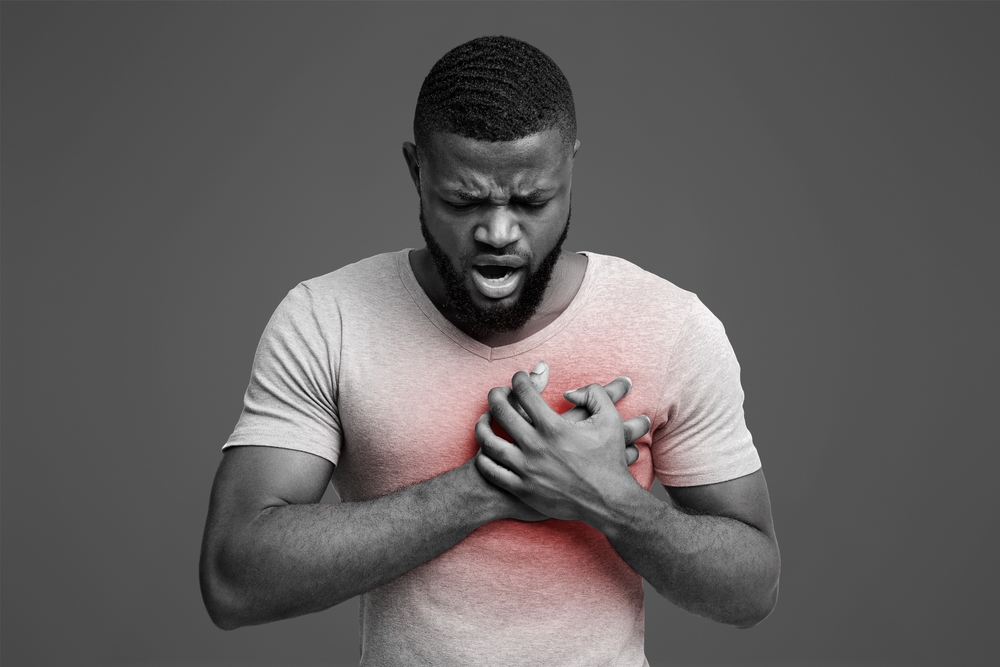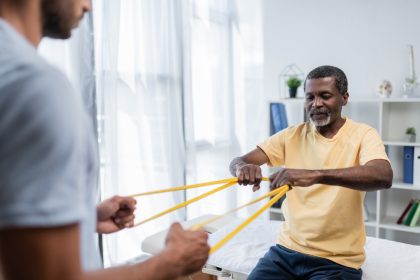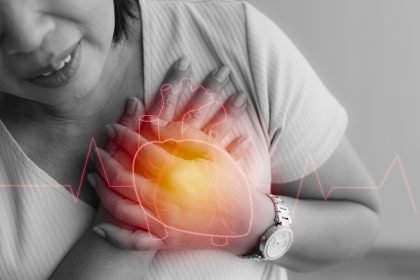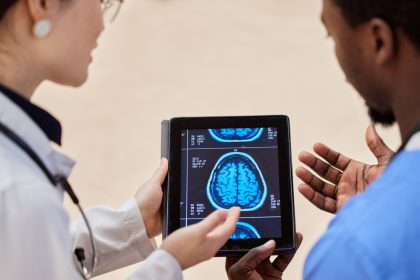In the blink of an eye, a stroke can rewrite the brain’s intricate circuitry, leaving a trail of disrupted functions in its wake. This cerebral lightning strike affects various regions of the brain, each with its own crucial role in daily life. Understanding these impacts is not just a matter of medical curiosity; it’s a roadmap for recovery and a guide for recognizing when every second counts.
The thinking cap: Cerebral cortex under siege
The cerebral cortex, our brain’s outer layer, is the epicenter of higher thinking. When a stroke strikes here, it’s like a computer’s central processor malfunctioning.
Memories slip away
Patients often find themselves grappling with foggy memories and muddled thoughts. Simple tasks become Herculean efforts as the mind struggles to process information it once handled with ease. For many, it’s as if parts of their personal history have been erased, leaving gaps in the narrative of their lives.
The body’s puppet master: Motor cortex in disarray
Our ability to move at will is something we often take for granted until it’s compromised. The motor cortex, when damaged by a stroke, can leave limbs feeling like foreign objects.
A body divided
Hemiplegia, the paralysis of one side of the body, is a common and devastating effect. Imagine waking up to find half of your body no longer responds to your commands. This new reality forces many to relearn the most basic of human movements, from lifting a fork to taking a step.
The words escape: Language centers in chaos
For many stroke survivors, the struggle to communicate becomes a daily battle. The brain’s language centers, when damaged, can turn the simplest conversation into a frustrating puzzle.
Silence speaks volumes
Aphasia, the inability to process or produce language, can leave individuals trapped in their own minds. Words they once knew intimately become strangers, and the world around them speaks in tongues they can no longer decipher.
The internal gyroscope: Cerebellum off-kilter
Balance and coordination, those silent partners in our every movement, find their home in the cerebellum. A stroke here can make the world feel like it’s constantly shifting beneath your feet.
Dancing with gravity
Survivors often describe feeling as if they’re perpetually on a rocking boat, their bodies struggling to find equilibrium in a world that seems to tilt and sway unpredictably.
Life’s autopilot: Brainstem in jeopardy
Deep within the brain lies the brainstem, the guardian of our most basic life functions. A stroke here is particularly perilous, threatening the very rhythms that keep us alive.
The breath of life falters
When the brainstem is affected, even the unconscious act of breathing can become a conscious struggle. The body’s most fundamental processes – heartbeat, blood pressure, wakefulness – hang in a delicate balance.
The emotional compass: Frontal lobe disrupted
Our personalities, those unique constellations of traits and behaviors, find their home in the frontal lobe. A stroke here can redraw the map of who we are.
A stranger in the mirror
Family members often report the unsettling experience of seeing a familiar face behave in unfamiliar ways. Impulsivity, mood swings, and changes in decision-making can leave loved ones feeling as if they’re interacting with a stranger wearing a familiar mask.
The world goes quiet: Temporal lobe silenced
Our ability to process sounds and form new memories resides in the temporal lobe. When a stroke affects this region, it can muffle the symphony of life.
The fading soundtrack
Survivors may find themselves struggling to understand speech, as if everyone around them is suddenly speaking underwater. The ability to form new memories can also be compromised, leaving individuals feeling unmoored in time.
Through a glass, darkly: Occipital lobe obscured
Vision, one of our primary ways of interacting with the world, is processed in the occipital lobe. A stroke here can dramatically alter how we perceive our surroundings.
A fractured view
From blurry vision to complete blindness in parts of the visual field, survivors may find themselves navigating a world that looks fundamentally different. Simple tasks like reading a book or recognizing a loved one’s face can become daunting challenges.
The body’s map redrawn: Parietal lobe puzzled
Our sense of where we are in space and how we process sensory information is governed by the parietal lobe. When stroke affects this area, the very fabric of how we experience the world can change.
Lost in familiar spaces
Survivors might struggle with spatial awareness, bumping into objects or misjudging distances. The ability to feel sensations like temperature or texture can also be compromised, leaving individuals feeling disconnected from their environment.
The emotional rollercoaster: Limbic system in flux
Our emotions and many of our memories are regulated by the limbic system. A stroke here can send emotional stability into a tailspin.
Feelings amplified
Mood swings, depression, and anxiety can become unwelcome companions on the road to recovery. The emotional landscape becomes as challenging to navigate as the physical one, with feelings intensified or dulled in unpredictable ways.
The long road back
The effects of a stroke are as varied as the individuals who experience them. Each area of the brain, when impacted, presents its own set of challenges and potential for recovery. Understanding these effects is crucial not just for medical professionals, but for patients and their loved ones as they navigate the complex journey of rehabilitation.
Recovery is often a marathon, not a sprint. It requires patience, perseverance, and a team of dedicated professionals working alongside the survivor. But with each small victory – a word remembered, a step taken, a smile shared – hope grows. The brain’s remarkable plasticity means that while the path forward may be long and winding, it’s one that many have traveled with success.
In the end, the story of stroke recovery is one of human resilience. It’s a testament to the brain’s ability to adapt and the human spirit’s capacity to persevere in the face of profound change. For those touched by stroke, understanding its effects is the first step on a journey of rediscovery – of the world around them, and of themselves.
This story was created using AI technology.












